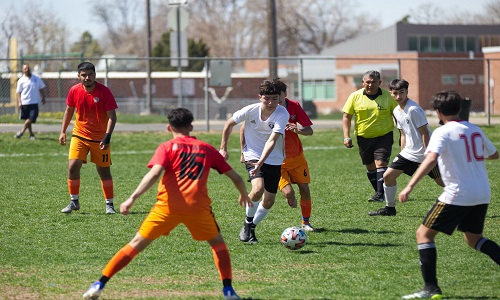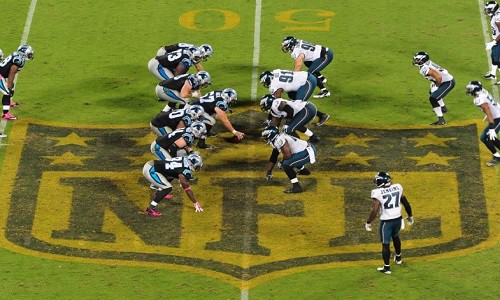An image that you often see in intense soccer matches is when the referee holds many yellow cards and red card soccer. After each of those actions, the outcome of the game often changes.
Yellow and red cards are the referee’s powerful tools to punish misconduct or foul play. Depending on the case, they will use different types of cards.
Would you like to learn more about them? Let’s explore with Langley Rams!
Contents
Red Card Soccer: Definition And Rules
Do you know “what does a red card mean in soccer?” The red card in soccer is the most significant penalty that the referee gives a player. Usually, it will be for individuals who make a grave mistake and force them to leave the field for the rest of the game.
Related: Best soccer player in the world
Take a moment to watch a video related to the most common red card fouls in history.
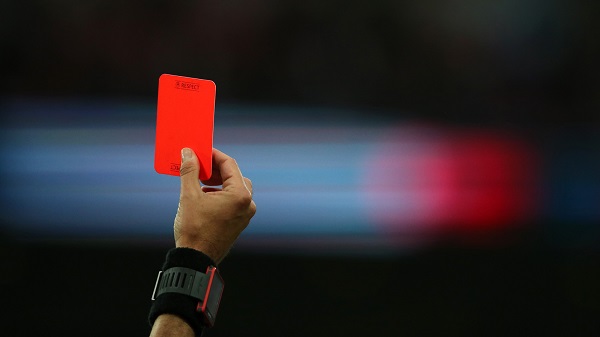
Red card in soccer
How to get a red card in soccer? Here are a few situations that can cause a player to receive a card immediately:
1. Guilty Of Serious Foul Play
Some players who want to block their opponents often exert a very excessive force on their bodies. This action is hazardous because it is effortless to cause serious injury to the opponent. As a result, the player will be shown a red card.
Some of the umpire’s behaviors that might be considered a severe foul include slipping from behind, grabbing the ball with two feet, or being too high. Because the referee is the one who is responsible for evaluating the play, sometimes their decisions cause a lot of controversies.
2. Conducting Violence
Violent conduct may include serious foul play, but it extends to all subjects on the pitch. When I say “all,” it consists of the coaching staff and the reserve players.
Violent acts are diverse, often threatening and using limbs to hurt any individual. That individual can be a member of the opposing team or the referee himself.
3. Abusive Language Or Spitting
In the heat of some moments, we may say bad words. Soccer will not accept that. Words that are heavily offensive or related to issues of racism or sexism will receive a red card.
Not only is insulting or abusive language affecting, but spitting is also considered a severe error. The referee himself has the power to issue a red card to the offending individual.
To keep a civilized and healthy sports environment, everyone must pay attention to their language and/or gestures.
4. Using Handball To Deny An Obvious Goal-Scoring Opportunity Or Making A Mistake On Intend
A soccer red card is a punishment for those who intentionally prevent an apparent goal-scoring opportunity of their opponent. Players are also not allowed to use their arms or hands to handle the ball. Only the goalkeeper can do that.
If the goalkeeper keeps the ball outside the penalty area, he must also receive a red card.
5. Receiving The Second Yellow Card
When a soccer player receives two yellow cards, it will equal an automatic red card. That player will immediately leave the field of play.
Yellow Card Soccer: Definition And Rules
Unlike red cards, yellow cards usually have more of a warning meaning. We have compiled a few actions by which the referee will draw a yellow card. They include:
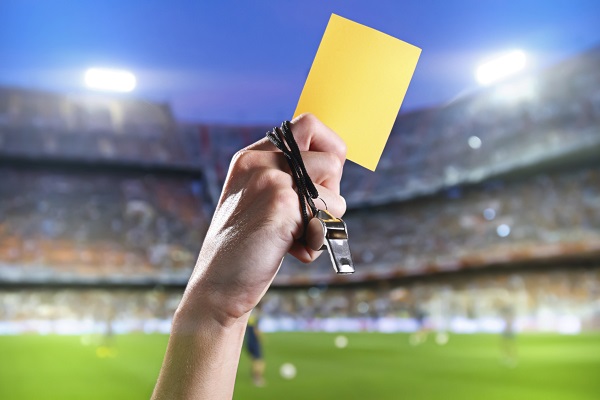
Yellow card in soccer
1. Unsporting Act Or Behaviour
The first mistake is also one of the most common mistakes we encounter when watching football. Behavior that is unsportsmanlike and goes against the Laws of the Game will result in a yellow card.
Such actions can be an overt celebration (e.g., taking off a shirt on the pitch) or a foul on purpose. The main referee is the one who will decide whether to sanction or not based on his judgment.
2. Persistently Law of the Game Infringement
If you only make small mistakes, the referee will forgive you. However, constantly making small mistakes also means making mistakes on purpose. The referee has the right to give you a yellow card in this case.
3. Delaying The Play Restart
Stopping and delaying too much of a match can also result in a yellow card. A good example is when a player takes too long to score or free-kick.
4. Disagreement By Words Or Actions
The use of offensive language may result in a yellow card if the referee deems it appropriate. Other acts of contempt, such as throwing the ball, walking away or clapping hands, and laughing sarcastically, are offensive insults.
Players need to be careful with their words and actions while playing!
5. Not Standing Within The Required Position
The minimum distance that players must stand during a throw-in, free-kick, or corner is 10 yards. Referees can warn players when they see a player making a mistake. If they are too stubborn and stubborn, they will receive a yellow card.
6. Inappropriate Entry Or Leave Without The Referee’s Permission
When a player leaves or enters the field, they must go through the referee’s opinion. Entering or leaving the field of play without the referee’s permission, for whatever reason, is against the law. The referee can give them a yellow card for this.
7. Guilty When Checking VAR Rules
VAR (Video Assistant Referees) is gradually becoming popular in important tournaments, such as the World Cup. They play an influential role in assisting the referee in reviewing the ball-handling to make a fair judgment.
Consequences of Yellow And Red Card In Soccer
Yellow and red cards are tools to punish misbehavior and unsportsmanlike behavior on the pitch. After the player receives the card, they will receive the corresponding consequences
For players who receive a yellow card, they can continue to play. That player will have to be more careful with their actions, not reckless because receiving a second yellow card means leaving the field.
The player that receives two yellow cards will be immediately subject to suspension. The duration of this punishment takes place in one game. Errors related to preventing an apparent goal-scoring opportunity also prevent players from participating in the game for the period of one game.
When a player leaves the field, the team will have to continue playing with ten men, which is an ample opportunity for an opponent. For errors related to insulting or abusive language, the player will receive a two-day suspension.
The most severe error related to a red card is serious foul play or violent conduct. The term of suspension for a fouled player can be up to three days or longer, depending on the severity.
Frequently Asked Questions
This section will help you answer a few questions related to the red card and yellow card in soccer.
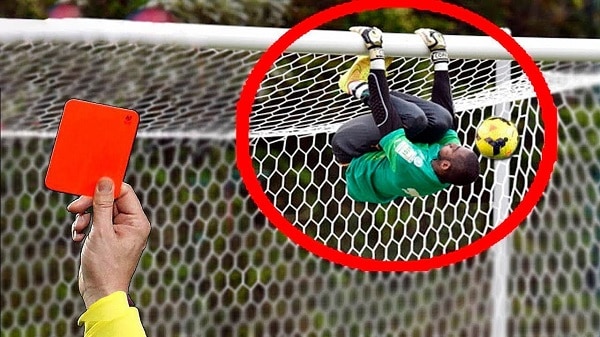
The goalkeeper can receive a red card too.
1. Can a goalkeeper get a red card in soccer?
Goalkeepers are also players, and of course, they will have to leave the field immediately as a penalty. The team will have to immediately appoint a player on the field to take the goalkeeper’s place.
Another possible option is for the team to replace any player on the field with a substitute and take the goalkeeper position. Either way, their squad will only have ten active players.
2. What is the origin of red cards and yellow cards?
There were violent attacks and fouls at a quarter-final in the 1966 World Cup between England and Argentina. The language disagreement between the German referee and the players delayed the game quite a while.
British referee Ken Aston has devised a way to use colored cards as a common language for the tournament. The use of red and yellow cards began to appear in the 1970 World Cup.
3. What is the maximum number of sent-off players in one game?
A team can have up to four sent-off players in a game. If there is a fifth player, the team will be immediately disqualified.
Final Thoughts
To ensure fairness and civility in football, we need strict rules and regulations. The yellow and red card system was born for this very purpose. Always keep yourself noble sportsmanship, fair-play spirit and try your best to get the most deserved victory.

